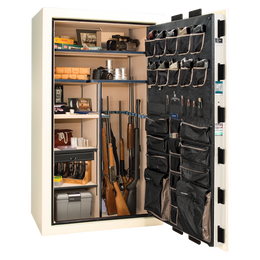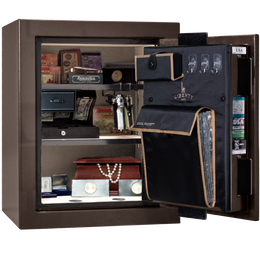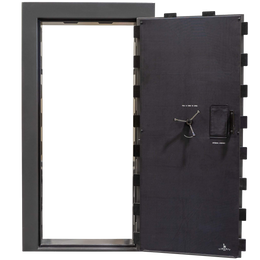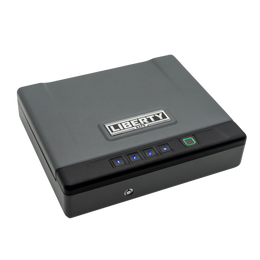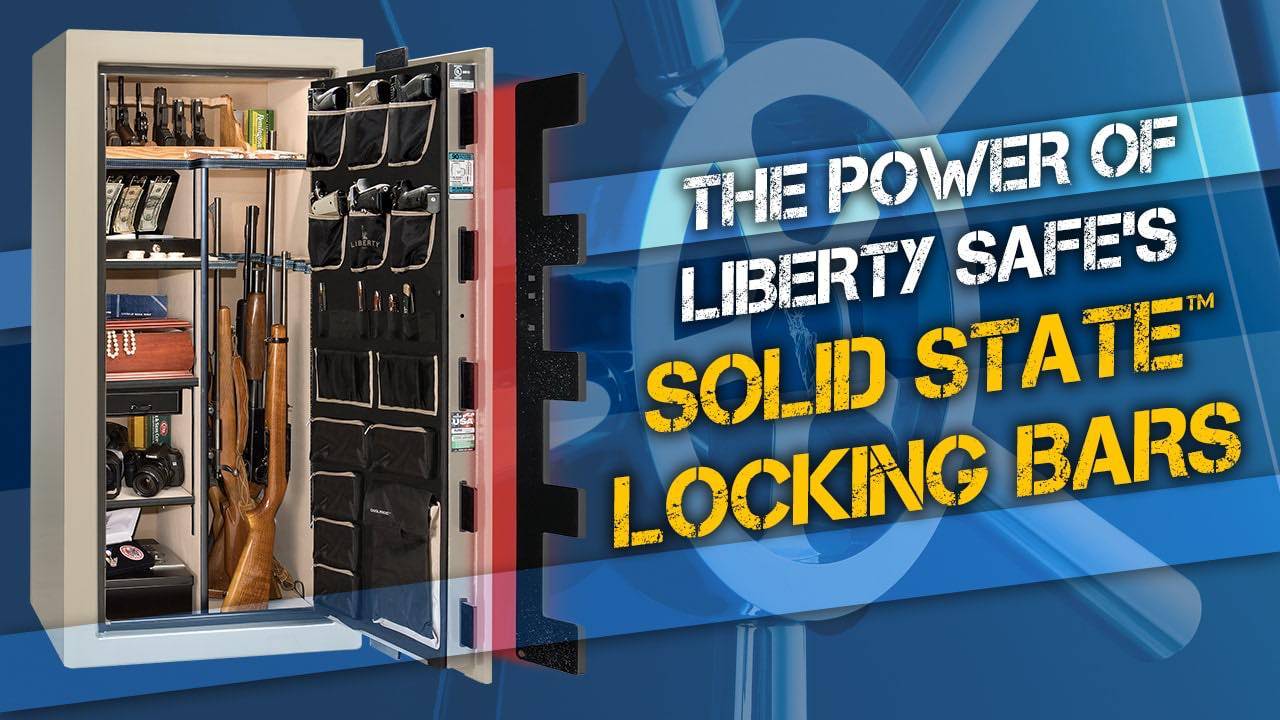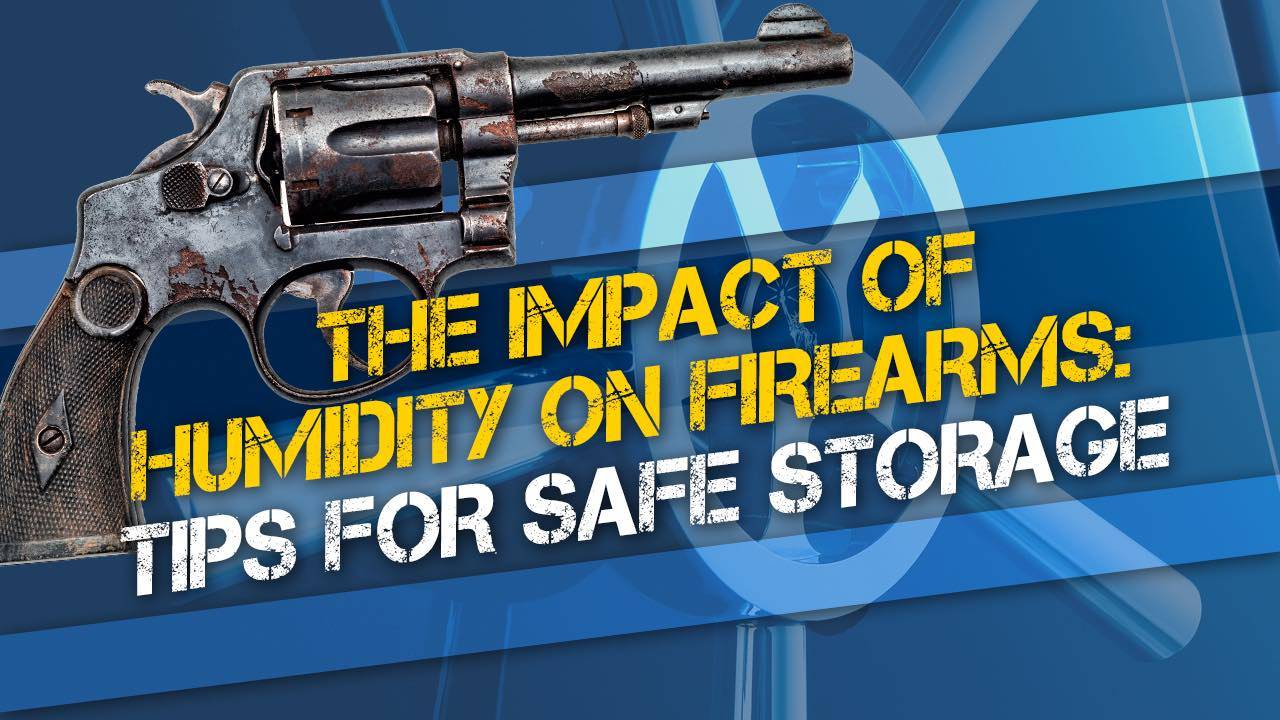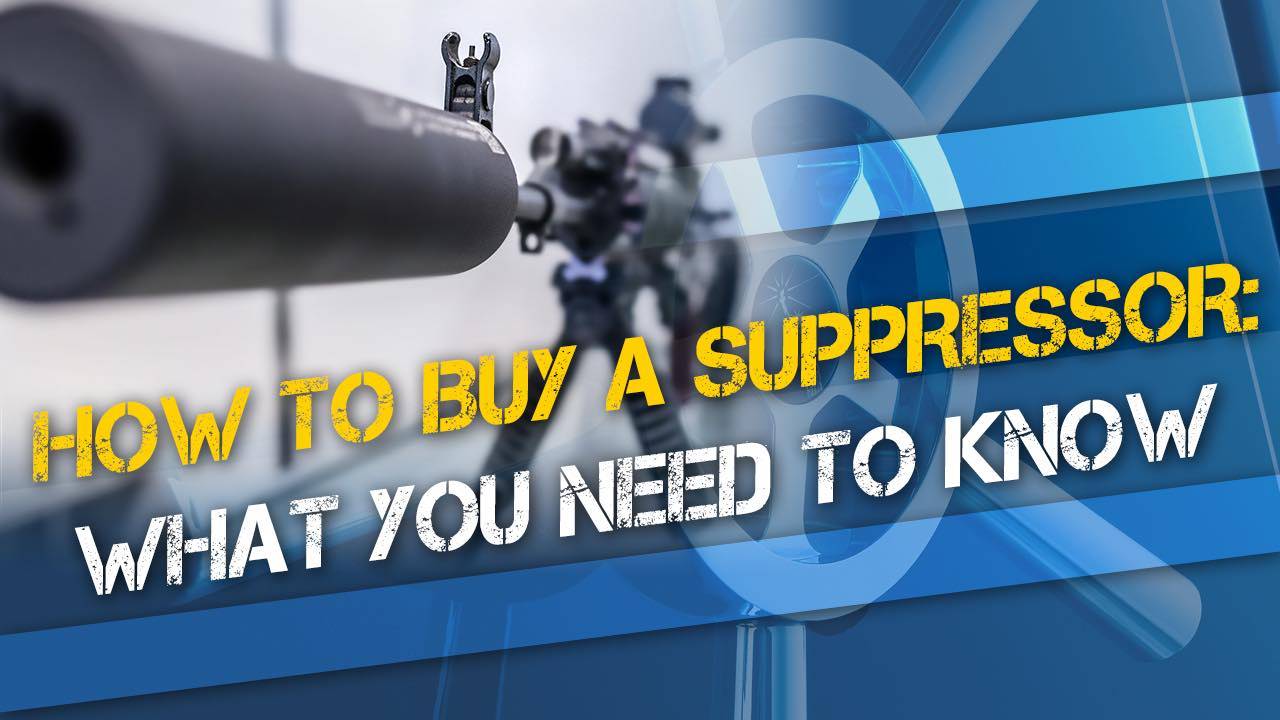In our articles about things you might not think to put in your safe, we’ve covered many items from genealogical records to medication to photo albums to backup hard drive devices and more, but perhaps the most basic (and least considered) might be a small supply of emergency food and water.
In a real local emergency situation where food, water, supplies, electricity (and maybe even toilet paper, wink wink) are unavailable or in short supply for an extended period, keeping a small emergency supply of food, water, and basic medical supplies in your safe might be appropriate. (Even better if you have a secure room with a vault door, which will allow for much more storage space to allow you to weather extended shortages.)
In this article:
- Why you might want to consider storing a small emergency supply of food and water in your safe
- Considerations for medical packs and first-aid kits
- Should you keep a bug-out bag in your safe?
- The huge (pun intended) benefits of a safe door or vault room
Space-efficient emergency food and water options
There are many sources of space-efficient emergency food sources to consider. It is probably not necessary (or wise) to fill your safe with food, but a couple of days’ worth will be a hedge against the unknown and will last for many years stored in your cool, dry safe environment.
Without doubt the most space-efficient emergency food storage type is dehydrated and/or freeze-dried food. If you vacuum-pack it it takes up even less space than in cans or bags that contain air as well. Water takes up a lot of space in the majority of the foods we eat, and if you remove it and package the food efficiently, you can get quite a bit of calories in a small space.
Military MREs and similar “ready to eat” type meals are also pretty handy, but they typically aren’t completely dehydrated, but are rather “condensed” and vacuum-packaged well. However, they usually take up more space than vacuum-packed, freeze-dried/dehydrated foods. They are loaded with calories though, which is a good thing in an emergency, so if you want to just keep enough food to last a couple of days, an MRE or two will keep you going. Lots of them aren’t bad tasting, either.
Water is likely to be a more pressing need than food, if it comes to the point of you relying on your safe-stored supply. (Of course, you know the tired old joke about dehydrated water.) A 3-day supply of emergency drinking water for as many people you wish to provide for is a reasonable idea, as are water purification tablets and filters or “life straw” type devices which allow you to purify or filter water from locally available sources like rivers, streams, ponds, wells, lakes, or if your city water becomes contaminated but is still running.
Emergency drinking water packets are available relatively inexpensively in those “Capri Sun” type foil bags, and they last for 5 years or more. Water does take up more space than food, but if all you had to drink for a couple of days was an emergency foil packet of water you dug out of the bottom of your safe, it might just be the best-tasting beverage you’ve ever had.
Water is obviously a key concern for “emergency” preparations since the food sources we’ve discussed above typically require a source of water for rehydration and food preparation. So in addition to whatever emergency sources of water and/or water purification you decide to store in your safe
Medical packs, first aid kits, bug-out bags, etc.
A compact medical bag is a good idea to store along with your other emergency supplies if you choose to keep them in your safe. If your situation is so dire as to need your absolute last-resort emergency backup supply of food and water, that probably means your primary supply in your home is not available for whatever reason, and there’s a good chance you’ll benefit from a medical kit (and a small “bug-out bag” as well). Remember, these are options to consider for the very outside of possibility, but it can add peace of mind.
Be sure to include in your medical pack any necessary prescription medications you take regularly, and set reminders to replace this emergency supply yearly.
Whether you want to store a bug-out bag, “evac bag,” or battle bag in your safe is a personal choice, but if you pack efficiently you might be able to find space for one, and it’s not a bad idea if you can spare the room. Larger and bulkier items like packs, bug-out bags, sleeping bags, tents, etc. probably aren’t ideal safe-stored items, but they’d be great in a secure room behind a vault door, stored with your primary emergency food and water supply. You do have a good stockpile of emergency food and water, right?
So… should you consider storing toilet paper in your safe? Maybe. Toilet paper takes up a lot of room. But if you remember what it was like when every store’s shelves were completely bare and they were rationing the purchase of toilet paper for customers, you might find a place of honor in your safe for such an item. A packet of moist flushable wipes can feel more valuable than gold when there’s no hope of buying toilet paper, and doesn’t take up much space in your safe, either.


